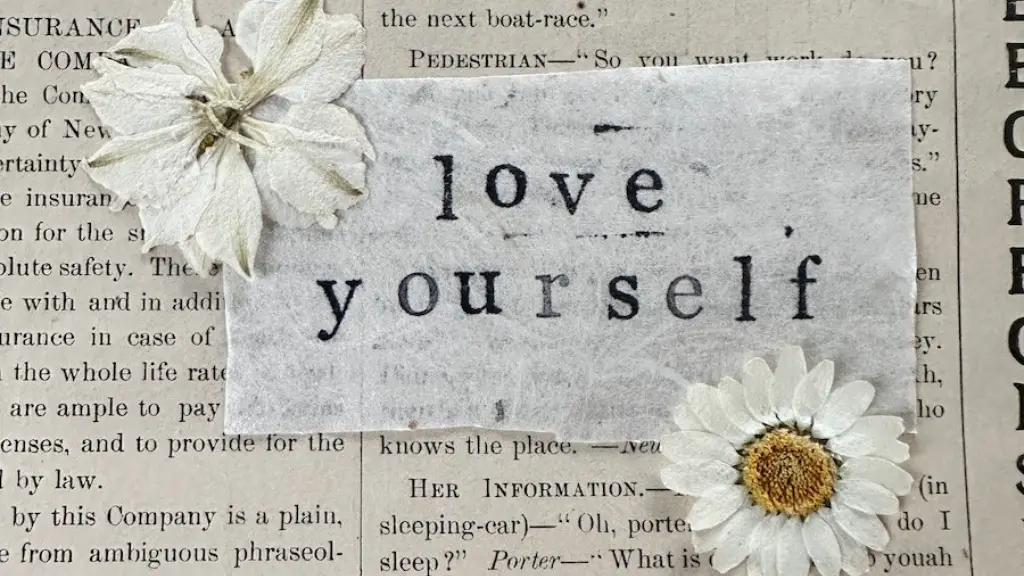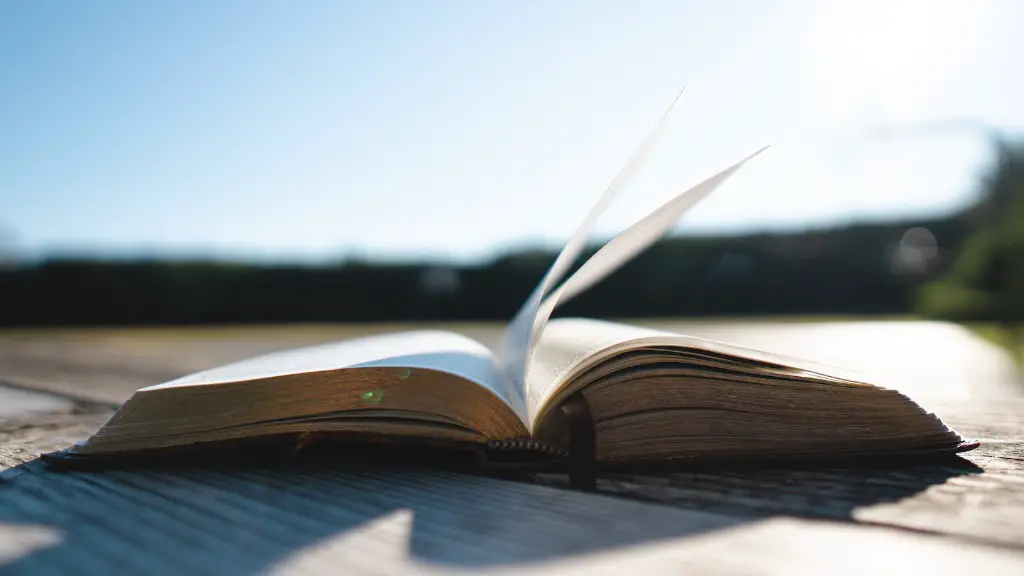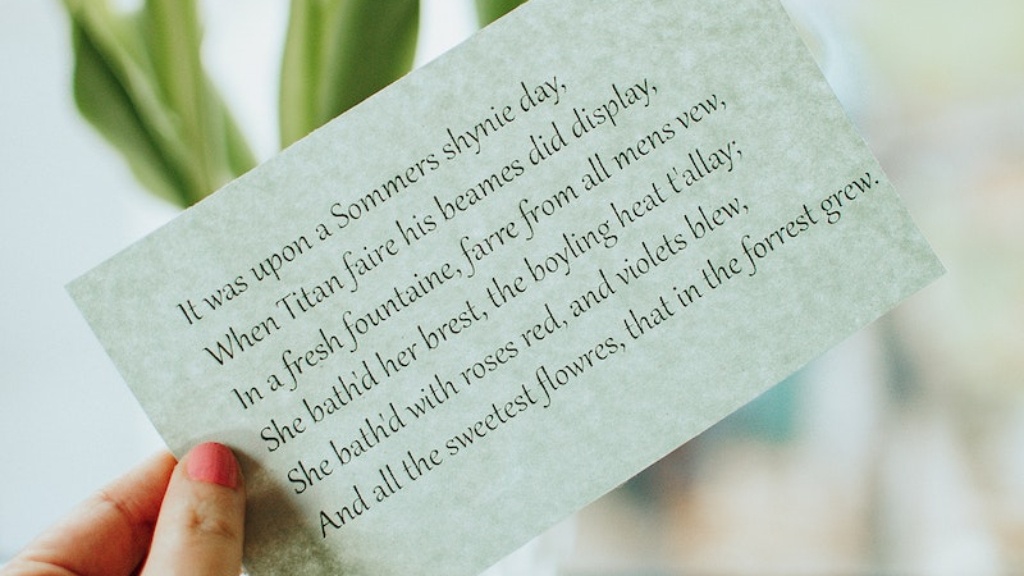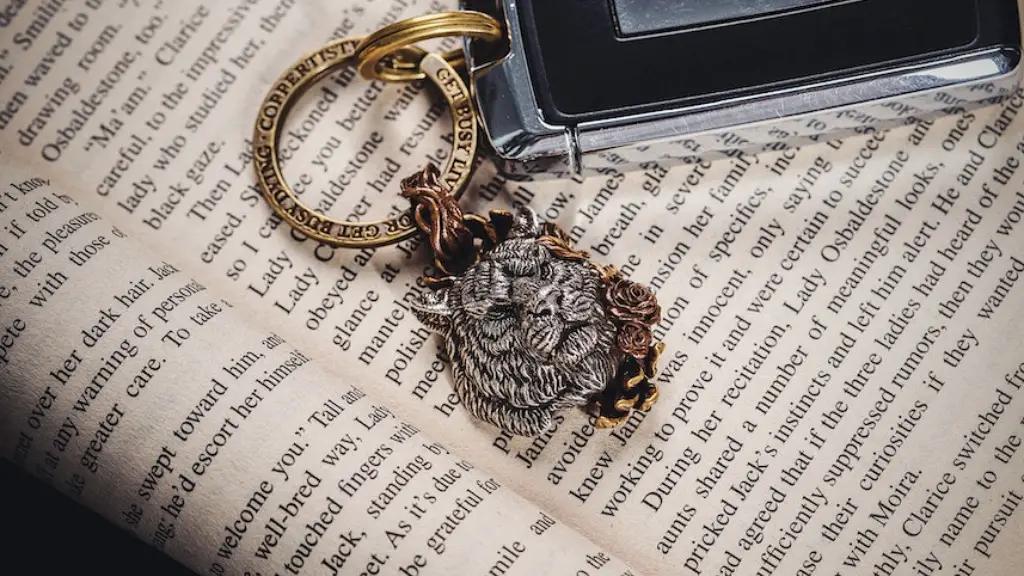Background information
Poetry is an ancient art form that has been used to convey ideas and feelings for generations. Oftentimes, poetry is appreciated primarily through oral recitation and performance. However, with the advent of digital recording technology, the ability to record, store, and share poetry has grown exponentially. This style of recorded poetry can be used as a way to document and preserve valuable artistic expressions. Recording poetry can be especially beneficial to amateur poets and aspiring artists, as it can provide them with a permanent record of their work that can be shared with others.
Equipment and Tools
Recording poetry typically involves the use of either a digital audio recorder or a computer recording program. Digital audio recorders are small, handheld devices specifically designed for the recording and playback of audio, and range in cost from relatively inexpensive models to more expensive professional-grade gear. Computer recording programs, such as those found in most modern home computers, feature more detailed audio editing capabilities. Both of these tools can be used to create recordings of poetry that are of a high-quality and can be easily shared with others.
Recording Tips
When recording poetry, it is important to take into account the acoustic properties of the space in which the recording is taking place. Ambient noise, such as that produced by an air conditioner or traffic outside, can have a detrimental effect on the quality of the recording and should be avoided if possible. Additionally, one should make sure to use the correct microphone type. For best results, a dynamic, condenser, or ribbon microphone should be used. The microphone should be positioned at least one foot away from the poet and slightly off-center.
Editing and Post-Production
Once the recording of the poem is complete, the recording should be carefully edited. Editing is the process of removing unwanted noise and correcting any errors within the reading. Additionally, post-production choices such as applying a certain amount of reverb or adding background music can add additional flair to the recording. How much or how little editing is done is totally up to the artist, though it is important to remember that making too many changes to the original vocal performance can change the emotional impact of the poem.
Publishing and Sharing
Once the recording has been edited and finalized, the poem can be published or shared with others. The most common way of doing this is through digital audio platforms such as SoundCloud or YouTube. Platforms such as these allow one to directly upload recordings and then easily share them with those who have access to the platform. Additionally, it is possible to embed a recording on one’s own website or blog in order to more directly share recordings with others.
Copyright Considerations
In some instances, copyright law may need to be considered when publishing or sharing one’s recordings. If the poem being recorded is one’s own original work, then copyright considerations are likely not necessary. However, if the poem being recorded is not one’s own original work, then copyright considerations must be taken into account. Even if one merely intends to share recordings of well-known poems with others, one should still research the copyright laws in their respective country.
Creating an Audience
Once recordings of poetry have been shared or published, the next challenge is to create an audience for one’s recordings. This is a difficult task, as it requires extensive and effective marketing to let people know that recordings of one’s work are available and why they should listen. To this end, one should reach out to other poets and artists, as well as consider seeking out online poetry communities and forums where one’s work may be embraced. Additionally, taking advantage of social media platforms such as Twitter, Instagram, and Facebook may help in the process of creating an audience for one’s poetry recordings.
Technical Challenges and Best Practices
When recording poetry, technical challenges such as latency, distortion, and feedback can present themselves. To address these issues, one should pay attention to the technical specifications of the equipment being used and make sure that the recording space is acoustically treated in order to reduce any ambient noise. Additionally, one should make sure that the microphone is correctly positioned in relation to the poet and that the recording levels are correctly adjusted. Lastly, making sure to record several alternate takes of one’s poem when possible can help in the editing and post-production process.
Advantages of Recording Poetry
Recording poetry has a number of advantages. For starters, recording one’s work provides one with a permanent record of their work that can be accessed and shared with others at any time. Additionally, it offers poets the chance to appreciate and share their work in a more permanent and tangible way, allowing them to connect with audiences in ways that oral recitation or performance cannot match. Last but not least, recording poetry also offers amateur artists and aspiring poets the chance to refine their craft in a variety of ways through the use of recording and editing tools, as well as the opportunity to gain greater exposure for their work in the digital world.
Developing Style and Technique
As one continues to record and share their work, they should continue to strive to develop and refine the manner in which they deliver their poems. To this end, making sure to practice and rehearse before recording can help to ensure better recordings. Furthermore, researching delivery techniques and styles that other poets employ can be helpful in refining one’s own delivery as well as in gaining a better appreciation of the craft as whole.
Cultural Impact and Significance
As the recording of poetry has grown in prevalence, it has become an important tool in cultural preservation and the spread of ideas. Through recordings, the words of renowned poets and activists can be preserved and spread to new generations in ways that would have been impossible in the past. Additionally, the ability to record and share one’s work has allowed for more poets to come to the spotlight, allowing their voices to be heard. Overall, recorded poetry has become a powerful tool to convey knowledge, ideas, and culture to both local and international audiences.
Creating High Quality Recordings
When recording poetry, creating the best possible version of one’s work should be the primary goal. To this end, one should invest in quality equipment and learn how to use it properly. Additionally, quality recordings require attention to detail, especially when it comes to microphone placement, acoustic treatment, and editing. Lastly, one should take time to consider the soundscape and feel of the recording and make sure that it reflects the intended emotion of the poem.
Platforms and Nurturing an Audience
Creating visibility online is an important aspect of success when it comes to recorded poetry. To this end, it is important to upload recordings to multiple platforms in order to reach a wider audience. Additionally, one should pay attention to marketing practices such as SEO and analytics to better understand the scope of one’s audience and how to nurture it. Ultimately, the goal should be to create recordings of high quality while at the same time marketing them effectively.
Marketing and Promotion Strategies
For those hoping to have their recorded poetry heard by an audience, marketing and promotion strategies are essential. For starters, options such as paid digital advertising can help to spread one’s recordings to a wider audience. Additionally, building relationships with other poets and creating collaborative projects can boost visibility as well. Additionally, engaging with one’s existing audience and providing them with exclusive content can help to keep them interested and encourage them to share work with others.
Ethical Considerations
Ethics are an important aspect to consider when recording and sharing one’s work. To this end, one should take into account issues such as copyright and intellectual property, as well as the potential for the recordings to be misused or modified in ways that may be harmful or offensive. Making sure to read the terms and conditions of any platform that one is publishing recordings on may be beneficial in this regard. Additionally, one should remain mindful of how their recordings will affect both their reputation and the reputation of other poets.



